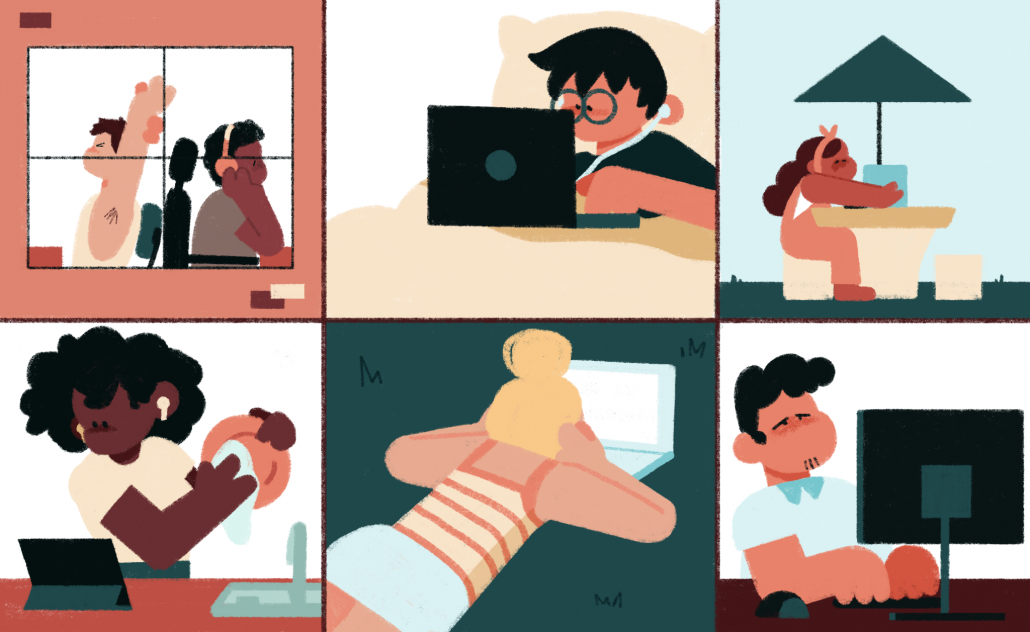Online proctoring should prioritize mastery over retention

In transitioning to online learning over the past seven months, professors across the country and at USC have tried their best to replicate the in-person classroom experience. While this has mostly been done over Zoom and Blackboard discussion boards, many professors across the University have also been trying to maintain rigor by preserving academic integrity in exams and quizzes.
USC officially supports and licenses extensions such as Proctorio and Respondus LockDown Browser to proctor exams and quizzes in classes. These programs flag suspicious behavior, use machine learning to monitor exams, record test-takers’ cameras and screens and lock down the testing environment to prevent cheating during assessments. However, these programs are merely security theater as their benefits are minimal. Moreover, they come at the cost of accessibility and severe restrictions and invasions of personal liberty and privacy.
These online proctoring services place particular burdens on marginalized communities and students who may not have testing environments compatible with the program. Respondus Lockdown Browser, for example, requires an environmental check of a room, which involves a 360-degree scan and audiovisual recording. For families that can only afford one computer in a shared space of the house, students would be labeled as in violation of exam procedures. Furthermore, not all computers have webcams and microphones, which both Proctorio and Respondus require for their respective programs.
This form of live monitoring may also place undue burden, pressure and stress on students who get easily anxious or may not want to show their homes. It’s worrying that it is now exceptionally relevant for a student to compromise their privacy for a quiz or test grade and that not doing so could be viewed unfavorably by professors. Because of these concerns, the University of California, Berkeley banned online exam proctoring outright as the Academic Senate argued that low-income and rural students lacked sufficient access to high-speed connections and compatible laptops.
Attempting to identically replicate in-person teaching online does not work often, especially when considering that if somebody really wants to cheat on a test, then it is likely that they will find a way to do so regardless of context. A host of different platforms and an entirely novel and unprecedented academic environment mean that, going forward, pedagogy and assessments must be different, too. If online learning is our future, then we should take this moment to change how higher education works.
Therefore, faculty must reconsider what it really means to evaluate and test a student’s knowledge. Traditionally, we’ve emphasized short-term retention of material as a reflection of learning and capability, but going forward, assessments should generally be open-note and open-book and encourage more analysis and synthesis of content.
We are almost always able to consult sources and outside knowledge in our ever-connected world — and it’s difficult to think of a situation (academic or career-related) where an individual would be discouraged from utilizing all available resources to maximize the quality of their work.
A working group of the UC Berkeley Academic Senate suggested open-book exams as a method of remote examination. Given that, in a remote setting, most students will have access to notes, books and other materials, the working group concluded that it would be best to design exams around this consideration, making them open-book in order to assess mastery of concepts instead of recollection. Faculty must then aim to have students engage and process course material and think critically, analytically and independently in order to apply their skills and knowledge in relevant concepts. In some cases, this might require a reimagining of teaching style or of the course material.
By moving to evaluate a student’s capacity and ability to create, evaluate and analyze course material, professors will better prepare them for the real world. Real life relies on using the most accurate information available to make decisions — and pigeonholing students to memorization will not help in terms of efficiency, understanding and integration of knowledge. USC must not only do away with intrusive online proctoring systems of security theater, but it must also move forward in higher education and promote new methods of thinking, analysis and evaluation.

